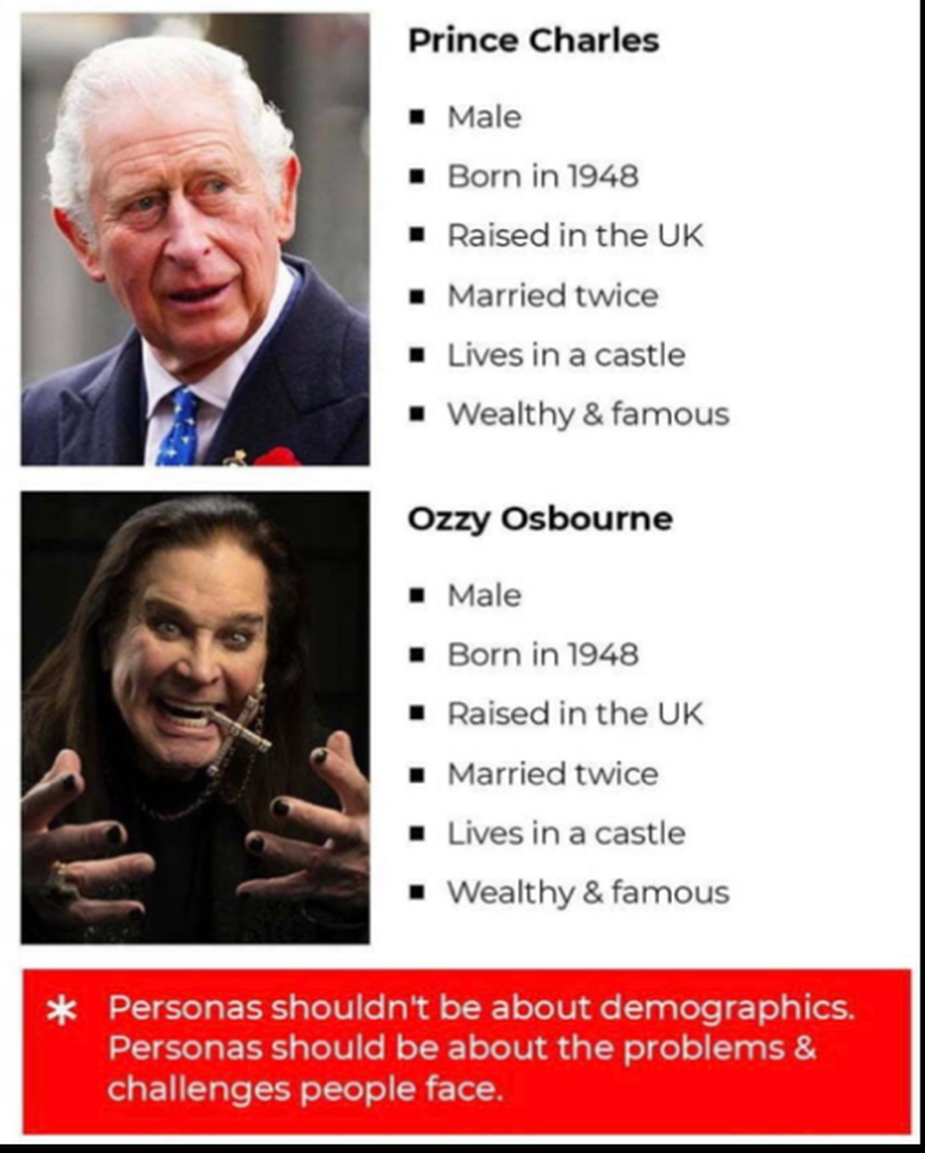
Is It Time to Put Ad Agencies' Approach to the Infamous 'Target' to Bed?

Whether it’s the aspirational target or the target persona or just plain old target – let’s agree on one thing: how we go about defining these terms is neither realistic, reflective nor cutting edge.
Yet, they are still terms that haunt the hallways of advertising agencies.
Terms that undoubtedly will be highlighted in a brief.
Terms that we blindly accept to represent people that exist in a utopia.
But for some reason, we cannot seem to part ways with it.
Well, to quote a very famous Disney song: it’s time to LET. IT. GO.
Let’s break down why:
The Target Persona is contradictory in and of itself: it oversimplifies who we’re speaking to, focusing on key demographics, while also aiming to be specific enough to separate the 'type' of person who would buy XYZ product.
Just like the very popular meme below conveys beautifully, we believe we’re narrowing down to speak to a 'specific' type of person yet, it’s not the case at all. Even within that description exists two very different people who have different needs and nuances in their lives, leading to different interests of what they might purchase. Not to mention the extremely high likelihood that they respond well to different messaging and tonality to be convinced to purchase.
 Source: ifunny.co
Source: ifunny.co
The aspirational target aims to give our real target audience the longing to be like who they see in the ad. To want the life of the person they see, to be part of that club… to, in a nutshell, increase desire for the type of life the brand is saying it represents.
But more often than not, the portrayal of these targets goes too far, creating an image of a person that feeds into the media's ability to create false norms. Some that might sound familiar…
“The young wrinkle-free woman who balances work and family life perfectly and ALWAYS finds time to work out.”
“The handsome manly man who believes showing emotion is a sign of weakness and is obviously the breadwinner.”
Although these target portrayal may have worked for previous generations, its success is debatable for this new generation.
Gen Z is the generation breaking old stereotypes and image norms that previous generations felt they were upheld to. While older generations were confronted with only one image of who you should want to be, this new generation is championing the many facets and complexities of what it means to be human. They are defying what’s been previously written with a permanent marker.
It’s not about men or women but about gender fluidity
It’s not about straight or gay but about a spectrum
It’s not about black or white but about widespread diversity
It’s not about able or disabled but about being inclusive to all
It’s not about fitting into a specific utopian image advertising has created but demanding that advertising represents the REAL image of our world.
Because representation matters.
As a POC millennial that grew up during the time that beauty meant being white, having blond hair, perfect skin, and airing on the side of being too thin… I was made to believe I wasn’t beautiful because there wasn’t any REAL representation of me. So, I too fell into the trap of longing to become something that I could physically never achieve. This “aspirational target” was magnifying a small sliver of reality, making us believe that it was a standard we should all reach for.
But today, we’re communicating to the most racially and ethnically diverse cohort that’s ever existed. A study conducted by Pew Research Center showed that 48% of Gen Z in the US are nonwhite, compared to 39% of millennials, 30 of Gen X, and 18% of boomers. So, you can only imagine that the target portrait generalization is going to be more complex than ever before.
And their differences and uniqueness are something that they’re proud of. It is embedded in the way they think and act, thus creating new expectations for brands to meet. And high on that list is the authentic representation of who they are, in all their glory. According to an international study done by the Center for Generational Kinetics, 82% of Gen Zers say they trust a company more if it uses images of real customers in its advertising.
They’re already rejecting this image of the “aspirational target” as they know it’s not reality. It’s contradictory to how they feel: they don’t want to try to become another person, but they want to celebrate themselves. And if there is any “aspiration” it’s still linked to their core: aiming to be the best version of themselves. They are perfectly confident and content with who they are, with an “unapologetic transparency and unconditional self-love.*”
And it’s admirable.
So how can we as advertisers sit and try to have them buy into the utopian life of a made-up marketing target, when they’re screaming at the top of their lungs that this doesn’t work for them? Especially when we have case studies from early adopter brands (Dove, Glossier, Axe circa 2016, Gucci…) that prove that rejecting this approach solidifies the consumer/brand relationship.
These brands aren’t asking themselves: “who do we want our target to wish they were” but instead: “how can we portray this target in the most real way possible.” And it’s the new question all brands should be implementing if they want to remain relevant.
We need to be using advertising’s power and influence on culture to celebrate this breakthrough shift towards self-acceptance and representation. It’s been a long time coming to finally have a generation that isn’t losing self-confidence due to the media’s portrayal of how things should look like and demanding them to actually show how things look.
So, let’s kiss the old ways goodbye.
Let’s recognise that the representation of a utopian world had its run.
R.I.P.
It’s time to embrace the raw, real, and representational.
It’s time to say hello to the Authentic Target.













